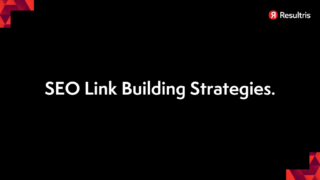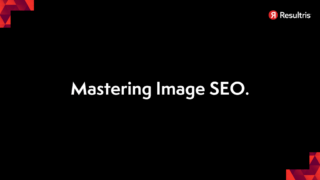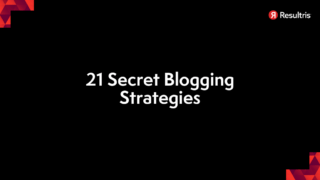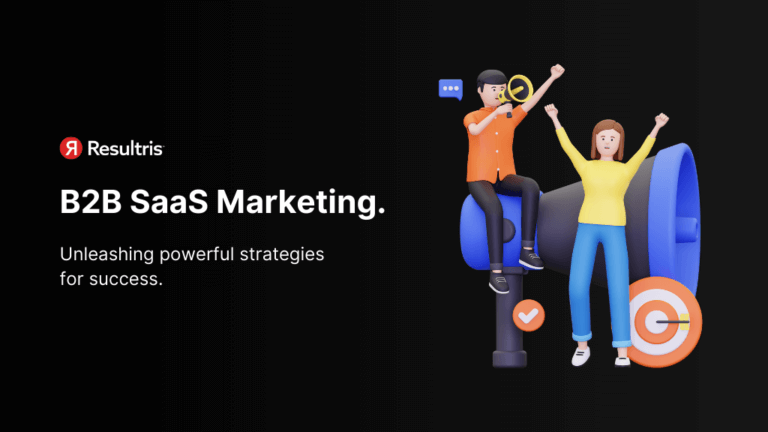
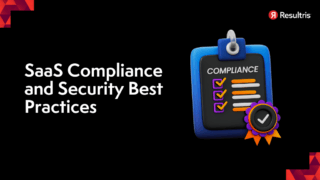
Written by: Tim Eisenhauer
Last updated:

In the dynamic world of B2B marketing, SaaS (Software as a Service) has undeniably carved its own niche. This cloud-based service model presents a unique opportunity for businesses to adopt high-end solutions without large upfront costs. We’re all about exploring these opportunities, diving deep into strategies that work, and sharing our insights with you.
It’s crucial to understand that B2B SaaS marketing doesn’t quite follow the same rules as traditional product or service marketing. The focus here isn’t just on selling a product; it’s about providing ongoing value and building lasting client relationships. This shift in focus demands an innovative approach to content creation, lead generation, and customer retention.
Tackling this complex beast might feel daunting at first but don’t worry! We’ve got your back. Together we’ll navigate the intricacies of B2B SaaS marketing, shedding light on successful strategies and revealing how they can be tailored to fit your business model perfectly. Buckle up—it’s going to be an exciting journey!
We’re about to delve into the world of B2B Software as a Service (SaaS) marketing. It’s a fascinating, complex landscape that’s constantly evolving—just like your business.
When we talk about B2B SaaS, we’re referring to companies that provide software solutions for other businesses. These are often subscription-based services hosted on the cloud. Think project management tools, social media scheduling platforms, or customer relationship management systems. They’re designed to help businesses improve their operations and drive growth.
The beauty of B2B SaaS lies in its scalability and accessibility—from startups to multinational corporations, there’s a solution out there for every business need.
So why is marketing crucial in this realm? Well, with countless software solutions vying for attention in the market space, standing out from the crowd is key—and that’s where strategic marketing comes into play.
Effective marketing helps potential customers understand what sets you apart from others—your unique selling proposition (USP). It might be more advanced features, better customer support service, or perhaps an unbeatable price point. Whatever it is that makes your software special needs to shine brightly through your marketing efforts.
Remember: When it comes to effective B2B Saas Marketing strategies—it’s not always about who shouts the loudest; often it’s about who communicates most effectively!
Identifying and understanding your target audience is vital. Who are they? What do they need? And how can your software fulfill those needs?
In many cases you’ll find that decision-makers such as CEOs and CTOs make up part of your target audience—but don’t forget influencers within organizations too! They could be managers or team leaders who use these kinds of tools every day—they’re just as important.
It’s crucial to understand your audience’s pain points and how your software can solve them. This will not only guide which features to highlight in your messaging but also help build a strong relationship with potential customers, generating trust and credibility.
In the world of B2B SaaS marketing, it’s all about connecting with the right people at the right time—and demonstrating that your product is just what they need!
In the ever-evolving world of business-to-business (B2B) software as a service (SaaS), we’re constantly seeking out effective strategies to drive growth. We’ve found that this often comes down to a combination of content marketing, email marketing, and social media advertising.
We can’t stress enough how vital content marketing is for B2B SaaS companies. It’s all about building trust and establishing industry expertise. Blogs, whitepapers, webinars – these are gold mines for sharing valuable insights that resonate with your target audience.
The result? You become more than just another vendor; you become a trusted advisor.
Next on our list is email marketing–it’s far from outdated! In fact, it offers one of the highest ROI among digital marketing channels. It’s not just about blasting emails though; it’s about personalized communication that keeps subscribers engaged and nurtures them towards conversion.
Remember – every touchpoint matters!
Finally, let’s talk social media advertising – an absolute must in today’s digital landscape! With platforms like LinkedIn and Facebook offering advanced targeting options, it’s now easier than ever to reach decision-makers directly:
So there you have it – three proven strategies to supercharge your B2B SaaS marketing efforts. Remember, the key is not just in implementing these strategies, but in continuously optimizing them based on performance metrics and customer feedback. Keep testing, tweaking, and improving – that’s how we stay ahead of the game!
In the world of B2B SaaS marketing, we’re lucky to have a plethora of tools at our disposal. It’s the technology that drives our strategies forward, helping us reach new customers and better serve existing ones.
One of the essential tools in any B2B SaaS marketer’s arsenal is CRM software. These platforms are designed to manage all our customer interactions and data. They help us keep track of leads, nurture relationships, and streamline processes—all from one central location.
There are many different CRM platforms out there, but some stand out more than others. Salesforce is arguably the most well-known, offering a comprehensive suite of features that make managing customer relationships easier than ever before. HubSpot also offers robust CRM capabilities alongside its other marketing tools.
Using a good CRM can lead to significant improvements in efficiency and effectiveness. For instance, businesses using CRM reported improved sales by 29%, sales productivity by 34%, and forecast accuracy by 42% according to Salesforce’s “State of Sales” report.
Next up on our list are marketing automation platforms—another vital tool for any B2B SaaS company looking to scale their efforts quickly.
Marketing automation tools like Marketo or Pardot allow us to automate repetitive tasks such as emails, social media posts, and other website actions. By automating these tasks, we can focus on strategic planning while still maintaining a consistent presence across various channels.
But it’s not just about saving time; it’s also about improving performance. According to Emailmonday:
The power of these technologies lies in their ability to provide personalized experiences for each prospect or customer—a crucial factor in the B2B SaaS industry, where relationships matter most.
With these tools and technologies at our fingertips, we’re better equipped than ever to succeed in the dynamic world of B2B SaaS marketing. The digital landscape is always changing, but with a sturdy foundation built on solid software like CRMs and marketing automation platforms, we’re ready for whatever comes next.
Let’s dive into the realm of measuring success when it comes to B2B SaaS Marketing. This can be a complex task, but with the right tools and knowledge, we’re able to effectively track our progress and make necessary adjustments.
KPIs are critical components for monitoring and evaluating the overall success of any marketing campaign. In the context of B2B SaaS marketing, some common KPIs include customer acquisition cost (CAC), lifetime value (LTV), churn rate, conversion rates and monthly recurring revenue (MRR). Each KPI provides us with a unique perspective on our performance.
For instance, CAC tells us how much we’re spending to acquire each new customer. It’s calculated by dividing total marketing costs by the number of new customers gained within a specific period. If we find that our CAC is high relative to LTV, which measures how much revenue a customer generates over their lifetime as a client, it might signal that we need to adjust our strategies or re-evaluate our targeting criteria.
The churn rate gives us insight into client retention—it reflects how many customers stop using our service over time. A high churn rate might indicate problems with product quality or customer satisfaction.
In addition to tracking KPIs, leveraging analytics tools can provide deeper insights into campaign effectiveness. These platforms offer comprehensive data tracking capabilities that allow us to understand user behavior on multiple levels.
Google Analytics is one such tool that’s commonly used in digital marketing efforts—it provides data on website traffic trends, user engagement metrics like bounce rate and session duration while also allowing for advanced audience segmentation.
Besides Google Analytics, there are numerous other reporting tools designed specifically for SaaS businesses like Chartmogul or Baremetrics. These platforms provide detailed reports on MRR growth/contraction trends, customer lifetime values, churn rates and other crucial SaaS metrics.
Let’s remember that while numbers and data are important to measure success, they’re only indicators of performance. It’s our job to interpret these insights and make strategic decisions based on them. Measuring success in B2B SaaS marketing involves a combination of rigid data analysis, intuition, and experience. As we continue to track our KPIs and utilize analytics tools effectively, we’ll be better equipped to ensure the success of our B2B SaaS marketing efforts.
We’ve journeyed together through the ins and outs of B2B SaaS Marketing. Let’s take a moment to reflect on what we’ve learned.
Firstly, we discovered the importance of understanding your target audience. It’s not enough to just know who they are; we need to understand their needs, wants and challenges too. This understanding forms the foundation of any successful marketing strategy.
Secondly, we emphasized how vital it is to have clear goals for your campaigns. Whether it’s lead generation, brand awareness or customer retention, having a measurable objective guides our efforts and helps us measure success.
Thirdly, content remains king in B2B SaaS marketing. From blog posts to webinars, e-books to infographics – offering valuable content attracts potential clients and keeps existing ones engaged.
Lastly but crucially, digital channels dominate B2B SaaS Marketing. We looked at various tactics like SEO optimization, Email marketing and Social Media campaigning as effective tools that should be part of your arsenal.
Let’s recap some key statistics:
| Strategy | Percentage |
|---|---|
| Content Marketing | 70% |
| Email Marketing | 60% |
| Social Media | 55% |
These numbers underscore the significance of these strategies in a successful B2B SaaS marketing campaign.
To wrap up:
Remember this: It’s about building relationships based on trust with potential customers over time. Patience pays off in B2B SaaS Marketing!
We hope you’ve found our insights helpful as you navigate through your own journey in this exciting field! Keep experimenting, keep learning and most importantly – keep growing!


